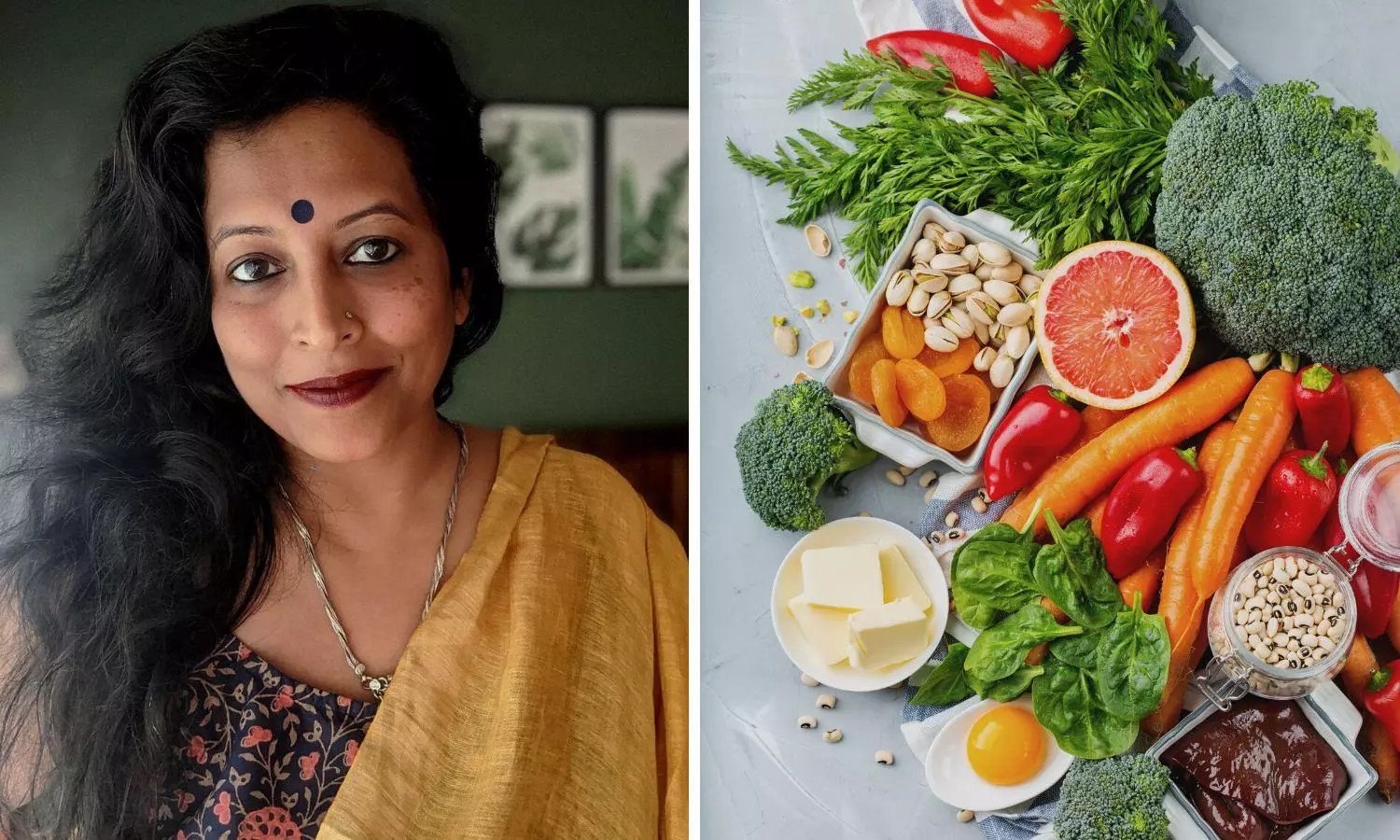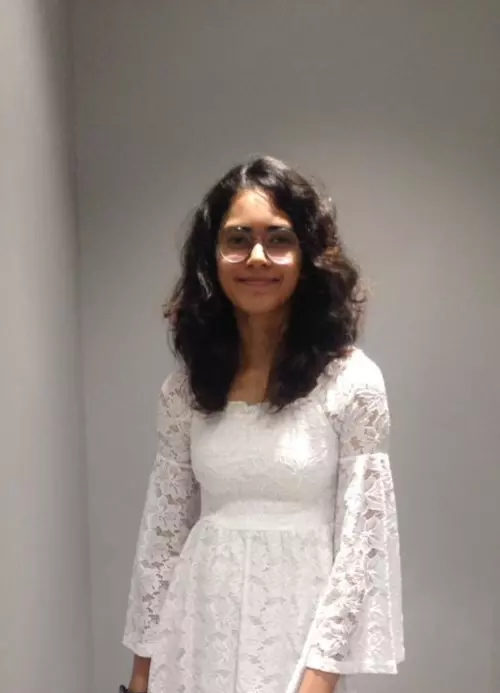Empowering health and unveiling the significance of National Nutrition Week with Dr. Nandita Iyer
Join us in an enlightening conversation with Dr. Nandita as she spills the beans on fueling a healthier nation
- By Natasha KitturLoading...
- | 30 Aug 2023 10:32 AM IST
 X
X
National Nutrition Week in India holds paramount importance, serving as a dedicated platform to raise awareness about the significance of proper nutrition and its impact on individual health and well-being. With the diverse range of diets and lifestyles, this week serves as a unifying reminder of the common goal: ensuring that every citizen has access to and knowledge about balanced diets and optimal nutrition. The week-long observance involves various educational campaigns, workshops, and initiatives that aim to educate people about making informed food choices, addressing malnutrition, and promoting healthy eating habits across all age groups. By highlighting the crucial link between nutrition and overall health, these seven days play a pivotal role in fostering a healthier nation and a brighter future for all.
In the spirit of National Nutrition Week, we conversed with the ever-vibrant Dr. Nandita Iyer. With a degree in Medicine and a fellowship in Applied Nutrition, Dr. Iyer is no ordinary expert. She's the culinary genius behind the popular YouTube Channel Saffron Trail, a columnist extraordinaire and the author of not one, but four enlightening books that spill the beans on mastering a balanced diet and conquering your nutrient goals.
Edited excerpts from the interview.
What is your take on the intake of supplements taking over as a part of people’s diet to get the adequate amount of nutrition?
Navigating the world of supplements demands a cautious approach, as blindly popping pills isn't a prescription for success – even the most knowledgeable doctor can't provide a one-size-fits-all recommendation. Your individual nutrient levels are unique to you. Prioritise understanding your baseline nutrient status before seeking professional guidance. While it might be tempting to take the supplement route independently, it's crucial to note that water-soluble vitamins like B and C won't linger and will be flushed out. On the flip side, fat-soluble counterparts such as A, D, or K tend to accumulate, potentially causing toxicity in the liver and beyond.
Turning to protein, the baseline requirement rests between 0.8 to 1 gram, but meeting this benchmark isn't a guarantee for all. Particularly for those embracing a vegetarian or vegan lifestyle, reaching this quota demands meticulous meal planning, dedication and investment. But, keep in mind that it isn’t impossible. One needs to look at food as a whole instead of searching which ingredient will provide the required nutrients. After all, a balanced diet will ensure you get your required nutrients in optimal quantities.
Given hectic schedules and the prominence of snacking, can you suggest nutritious alternatives for common snacks and junk foods?
Maintaining good health will never be hassle-free. At some point you will have to take the lead. When you're young, your parents handle it, but as you grow older, the responsibility falls on your shoulders. Remember, things that are super easy often aren't super healthy. You've got to find a balance. I believe teenagers should be taught simple and healthy recipes. You can even check out easy tutorials on platforms like YouTube. These recipes are really basic, nothing fancy. Try making simple salads or chaats at home. You can roast plain peanuts, almonds, or cashews for snack times. Mix some veggies with a bit of pav bhaji masala – it's not complicated. Making complicated or authentic recipes will just discourage you. Take shortcuts, use ready-made masalas if needed, and mix in different vegetables. Use fewer potatoes and more vegetables like beans, spinach, capsicums. Don't worry about sticking to traditional recipes – simpler ones work too. This way, you're not compromising on your health. On the weekend, spend just an hour or two to make these recipes and store them in the fridge for the whole week. These choices are much healthier than ordering food from outside. Your health is worth the effort!
Diets seem to be prevalent in the media, and sometimes for the wrong reasons. How, in your opinion, can one manage their weight effectively without resorting to extreme diets or fad trends?
The first step is always knowing what's good for you. It's like understanding the game plan. It's better to rely on experts than just trying to pick up stuff from social media. A professional has put a lot of effort and research into making a plan that fits you. But a short video on a social site might not be right for your body type at all. Plus, those creators might not know about nutrition and health. Diets are all about staying steady. Eat thoughtfully and try to eat naturally. Our bodies are built to survive. You can figure it out, trust your body. Trust what you feel. Really strict diets aren't even that doable. A diet that might work is intermittent fasting, but that still depends on your lifestyle and what you do. You need to make changes to fit your life. If you're under 18, it's usually best not to go on any diet, just try to be mindful about what you eat.
What are some practical tips for eating healthy while dining out or travelling?
Eggs are easy to find, and if you're a vegan, you've got tofu. When you're travelling in India, you can get beans, sprouts or dal. Start with veggies – fill half your plate with them. Go for salads and cooked vegetables, the dishes that don’t have a lot of gravy. Then take about 1/4 of your plate for carbs, like pasta, rice, or even rotis. If not that, then go for something made with potatoes. Finally, add the protein – non-veg, dal, or yogurt to make it strong. Fish and eggs work too. This way, you don't need to worry about counting if you're getting enough for the day. If you're on a calorie deficit or calorie surplus diet, adjust how much you eat. Don't add too much extra fat. If you see a dish with oil on top, it's better to skip it. Choose drier dishes instead – they won't have as much oil. When you are on the road, opt to carry a small bag of nuts or cheese while you're on the road. Even cheese cubes that have been processed offer about five grams of protein, which is a better alternative to fried snacks or biscuits.
What are the best sources of plant-based protein for vegetarians and vegans?
Different kinds of beans and lentils are great. Don't just look at one thing in the food, see the whole picture. For instance, only plants have fibre, you won't find it in animal products. So, even if you eat meat, you still need some vegetables to keep things balanced. Plant foods have different qualities like phytonutrients and antioxidants are an important part of a balanced diet. Beans and lentils have lots of protein, if you are looking for plant-based options. Make a salad with sprouts or kala chana, or try a cheela or adai with beans. If you're a vegetarian, have yogurt or dairy. Quinoa is full of protein and has lots of fibre. So does dal and chawal, or millets and beans mixed, or even dairy. Eating different foods is important, don't just focus on one thing like protein or fibre. Nutrition is like a puzzle, where every piece matters.
Are there any superfoods that you recommend incorporating into our diets?
I am not one to say don’t go for superfoods, given that I have penned a book on superfoods myself. But I will say don’t stick to just one or two. There's a list of around 40 to 50 foods that are really good for you. Stick it on your fridge so you can see if you're eating them. Some are super common, like pumpkins and tomatoes. In Indian cooking, we use lots of these vegetables and spices like turmeric. For example, cooked tomatoes possess antioxidants that are good for you, so try to have them in your meals, like in a puree or a dish. The important thing is to keep having them regularly, not just once in a while. Your body will thank you.
What are the best strategies for maintaining healthy eating habits during stressful periods or emotional challenges?
During difficult times like this, it can really help to have a routine. Sometimes, it's also nice to stick to the same foods, like oats or roti sabzi. Following a routine makes you feel stable, comfortable and like you've got some control on what’s happening. Try not to jump into new stuff like fancy recipes. Look at foods that are familiar to you and have always been cooked at home. Trust in those for comfort. Because when your mind isn't at its best, it can be hard to put in extra effort for yourself, and you might feel like giving up on everything. A routine at least makes things simpler. Remember basic hygiene too. You can even distract yourself a bit – watch your favourite show and then sit down to eat. It's okay to break your usual eating habits once in a while during tough times. It's okay this time. You need some support during these days. If you're with family, talk to them for comfort. Focus on whole foods and what you eat at home. Don't get caught up in the Hollywood sense of comfort and think ice creams are the answer when you're feeling down. The last thing you want to do when your mental health is not at peak is to mess up your physical health too. It's okay to have little treats, just try not to go overboard.
Lastly, given the significance of National Nutrition Week, what is your advice to the youth of the country who seem to forget the importance of a balanced diet in the hustle of life?
My only advice to the youngsters is to look at food as a friend, don't fear food. Viewing it as good or bad takes away the joy of eating. Food is not just about sustenance; it's also about culture, pleasure and social interaction. Listen to your body, enjoy a variety of foods and make choices that align with your overall health and well-being goals. Remember that nutrition is a complex, nuanced field and it's important that you approach it with flexibility, compassion and a focus on holistic health.

Natasha Kittur
Natasha Kittur is an aspiring writer. Her love for anything with cheese and spice is profound, but a white sauce pasta always tops her list. In her free time you will catch her reading or watching crime books and shows or go on and on about psychological experiments and theories. She aims to write a book in the fictional genre someday.


